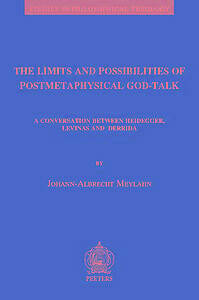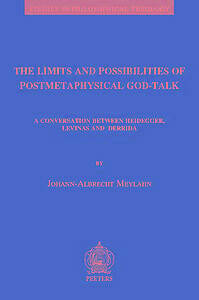
- Afhalen na 1 uur in een winkel met voorraad
- Gratis thuislevering in België vanaf € 30
- Ruim aanbod met 7 miljoen producten
- Afhalen na 1 uur in een winkel met voorraad
- Gratis thuislevering in België vanaf € 30
- Ruim aanbod met 7 miljoen producten
Zoeken
The Limits and Possibilities of Postmetaphysical God-Talk
A Conversation Between Heidegger, Levinas and Derrida
J-A Meylahn
€ 56,00
+ 112 punten
Omschrijving
Postmetaphysics in this book is interpreted as thinking through metaphysics at the closure of metaphysics by thinking the impossible possibility of metaphysics. In this site of the closure of metaphysics and the turn to language, the grammar of faith is discovered as the grammar of language or writing (grammatology). The logic or grammatology of writing and thus of reality (context) is revealed, not contra to philosophy or metaphysics, but when thinking through metaphysics to its end (Heidegger) or closure (Derrida), and there in that site the grammar of faith is revealed as the grammar of texts and contexts and in such a site God is a good name to save and hence the possibility of postmetaphysical God-talk. The book concludes with three oblique offerings with regard to such postmetaphysical God-talk, namely a construction of an image, theopoetics and finally holy folly in response to the limitations and possibilities of postmetaphysical God-talk in the light of the conversation between Heidegger, Levinas and Derrida.
Specificaties
Betrokkenen
- Auteur(s):
- Uitgeverij:
Inhoud
- Aantal bladzijden:
- 355
- Taal:
- Engels
- Reeks:
- Reeksnummer:
- nr. 52
Eigenschappen
- Productcode (EAN):
- 9789042928961
- Verschijningsdatum:
- 7/05/2013
- Uitvoering:
- Paperback
- Formaat:
- Trade paperback (VS)
- Afmetingen:
- 160 mm x 239 mm
- Gewicht:
- 566 g

Alleen bij Standaard Boekhandel
+ 112 punten op je klantenkaart van Standaard Boekhandel
Beoordelingen
We publiceren alleen reviews die voldoen aan de voorwaarden voor reviews. Bekijk onze voorwaarden voor reviews.











